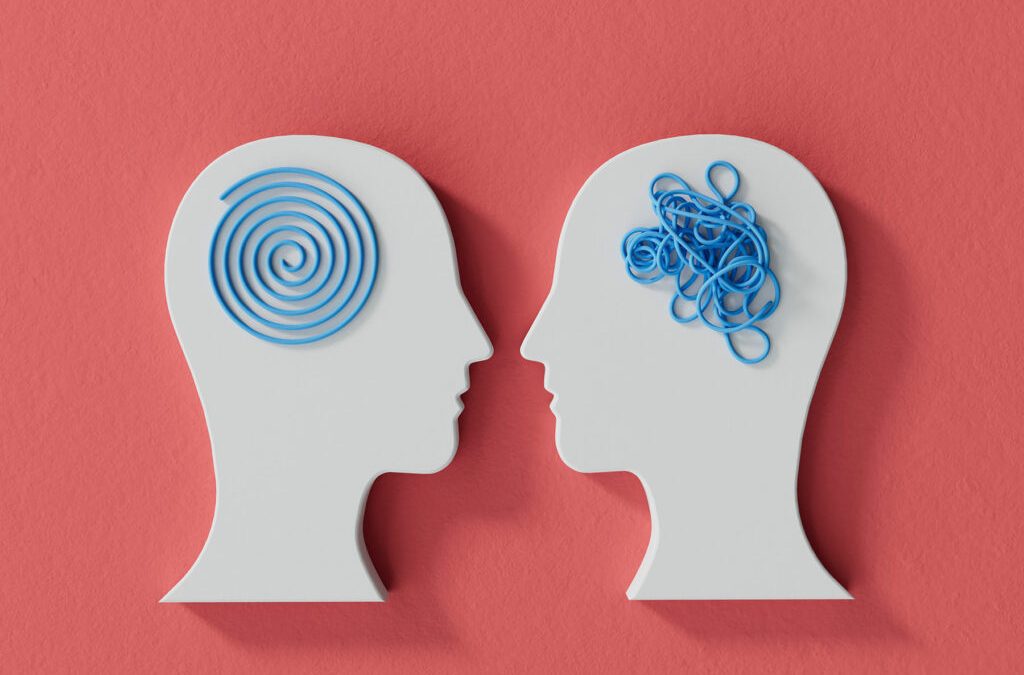Mood Swing Management, the Indian traditional medical system known as Ayurveda provides a comprehensive approach to health that includes mood swing treatment. According to the Ayurveda approach to mood swings, fluctuations in mood are frequently linked to imbalances in the doshas (Vata, Pitta, and Kapha), abnormalities in the movement of prana, or life force energy, and problems with the mind-body connection.
The following are some Ayurvedic methods for controlling mood swings:
Ayurveda acknowledges that mood fluctuations may be caused by dosha imbalances. Comprehending your distinct constitution (prakriti) and present doshic imbalances (vikriti) will facilitate tailored advice about nutrition, way of life, and herbal medicines.
- Vata Dosha balancing:
Mood fluctuations are frequently linked to an imbalance in Vata. Maintain a daily schedule (dinacharya) with regular bedtimes and mealtimes to balance Vata dosha which directly plays a role in mental instability such as anxiety, restlessness, fearfulness, insomnia, etc.
- Pacification of Pitta:
If irritation or rage are linked to mood swings, there can be a Pitta imbalance. Pitta can be balanced by relaxing and cooling lifestyle and dietary choices. Consume cold foods such as coconut, mint, and cucumbers.
- Energising the Kapha:
Lethargy or heaviness during mood swings might indicate a Kapha imbalance. Exercise often to encourage the flow of energy, and stay away from heavy, sugary, or fatty meals. Adding warming spices such as black pepper and ginger is a good ayurvedic approach for mood swings.
Common Reasons for Mood Swings
The Vata element known as prana vayu is in charge of the upward flow of all bodily energy, including mental energy. Mood swings, mental unrest, and disorganized thoughts can be caused by prana vayu imbalances. Agni is the fire of digestion; imbalances in this energy can impact not just the digestion of material food but also the digestion of feelings and experiences. Mood swings may be caused by improper emotional processing. Daily routines that aren’t consistent, inadequate sleep, overstimulation, and consuming too many processed foods or stimulants can all lead to dosha imbalances and poor mental health.
Simple Ways to Balance Mood
- Breathwork and Pranayama:
Inherent to Ayurveda is pranayama, or breath practice. Deep belly breathing and alternating nostril breathing, or Nadi Shodhana, are two techniques that can help balance the nervous system, lower stress, and foster emotional equilibrium.
- Aromatherapy:
Relaxing essential oils such as lavender, chamomile, or sandalwood ayurvedic approaches for mood swings can be used in aromatherapy to provide a relaxing mental impact. For a relaxing massage, combine a few drops of these oils with a carrier oil or use them in a diffuser.
- Herbal Treatments:
Calming qualities are well-known for several Ayurvedic medicines that are suitable for soothing mental state as an Ayurvedic approach for mood swings. Employing brahmi, ashwagandha, and shankhapushpi is customary to promote mental health.
- Shavasana:
With your arms by your sides and your legs outstretched, adopt a flat, back position. Shut your eyes and pay attention to your breathing. Deep relaxation and nervous system calmness are two benefits of the relaxation position of savasana.
- Recognizing Dosha Harmony:
Ayurveda acknowledges that sound affects the doshas. The impact of music on the Vata, Pitta, and Kapha doshas might differ. For instance, melodies that are rhythmic and tranquil may assist in balancing Vata, whereas songs that are soft and calming may help balance Pitta. Uplifting and energizing music may be beneficial for Kaphas.
By focusing solely on the music and avoiding outside distractions, you may practice attentive listening. This type of meditation as per the Ayurveda approach for mood swings may help calm the mind and divert it from unfavorable thinking patterns linked to mood fluctuations. Calming sounds might come from nature noises, soft instrumental music, or old Indian ragas. It’s commonly accepted that listening to music with mellow melodies and a moderate speed helps maintain emotional equilibrium.
- Including Breathing in Rhythm:
Mix breathing exercises with rhythmic music. Breathe in and out in time with the speed of the music. This can strengthen the meditative benefits of breathing exercises and music, encouraging equilibrium as the Ayurveda approach for mood swings.
- Consciously Consuming Food:
In Ayurveda, attentive eating is highly valued. Eat in a serene setting, taking pleasure in every taste. This impacts mental health by supporting healthy digestion and food absorption.
Ayurveda Drugs for Mood Swings
1. Brahmi
In Ayurveda approach for mood swings, Brahmi is regarded as a potent brain tonic. It is thought to support mental clarity, strengthen memory, and boost cognitive function. These cognitive advantages might lessen the severity of mood fluctuations by promoting mental stability and focus. As an adaptogenic herb, Brahmi aids in the body’s ability to adjust to stimuli. It is said to have a relaxing impact on the nervous system, which may help people who experience mood swings brought on by stress.
It has anxiolytic qualities and might aid in reducing anxiety symptoms. It is thought to encourage serenity and relaxation, which may lessen the frequency and severity of mood fluctuations linked to anxiety. It also possesses neuroprotective qualities that help shield the neurological system and brain from oxidative stress.
2. Yashtimadhu
As an adaptogen, yashtimadhu as an ayurvedic approach for mood swings may aid in the body’s ability to adjust to stress and preserve equilibrium. This adaptogenic property may be helpful for people who experience mood fluctuations brought on by stress. Feeling comfortable physically has a positive impact on emotional health. There may be slight antidepressant effects from Yashtimadhu. It is believed to have an impact on brain chemicals that are involved in mood regulation, such as serotonin.
